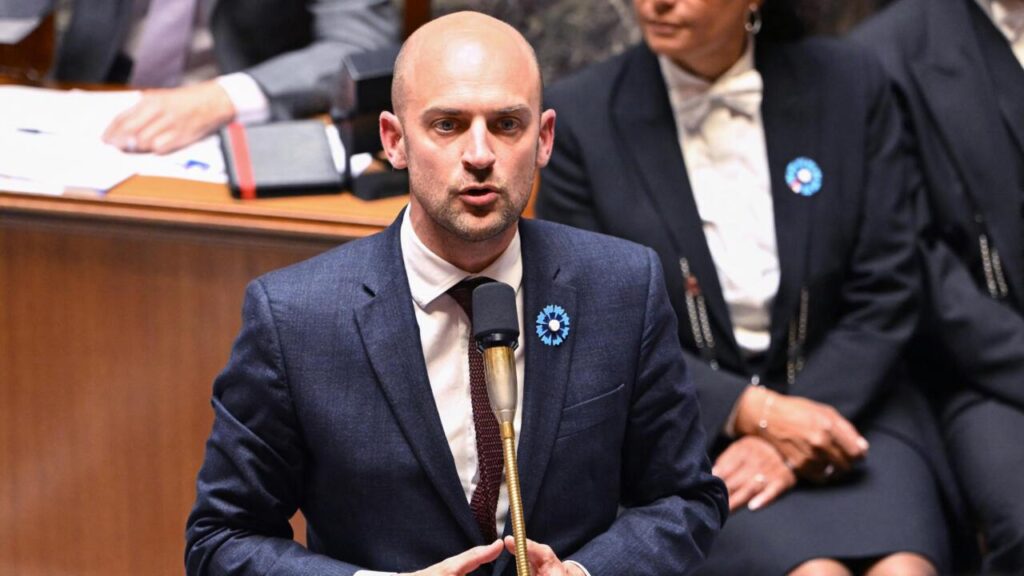France and Algeria: Navigating a New Chapter in Diplomatic Strain
Recent Diplomatic Expulsions Signal Rising Tensions
In a marked intensification of diplomatic discord, France has recently expelled multiple Algerian diplomats, responding directly to Algeria’s earlier decision to remove French officials. This reciprocal action highlights the growing strain between the two nations, whose relationship is deeply influenced by a turbulent colonial past and ongoing political disagreements. The expulsions have sparked widespread concern about the future stability of their bilateral ties and regional diplomacy.
This development unfolds amid rising nationalist sentiments within both countries, with domestic pressures amplifying governmental responses. Analysts are closely monitoring how Paris and Algiers will manage this escalating standoff, which threatens not only their direct relations but also broader Mediterranean geopolitical equilibrium.
Root Causes Behind the Diplomatic Fallout
The deterioration in Franco-Algerian relations stems from several intertwined issues:
- Colonial History Revisited: Contentious debates over France’s colonial legacy in Algeria continue to fuel mistrust, with calls for formal apologies and reparations gaining momentum.
- Migratory Challenges: France’s increasingly stringent immigration policies have disproportionately affected Algerian nationals residing in France, exacerbating tensions.
- Evolving Political Alliances: Shifts in regional partnerships are influencing power balances across North Africa and Europe, adding complexity to bilateral interactions.
The recent expulsions can be seen as symptomatic of these deeper conflicts rather than isolated incidents. For instance, stricter visa regulations imposed by France have been met with criticism from Algerian authorities who view them as discriminatory measures undermining long-standing social ties.
A Historical Lens: Understanding Franco-Algerian Relations Today
The relationship between France and Algeria is shaped by over a century of shared history marked by colonization (1830–1962), violent struggle for independence, and subsequent waves of migration. The Algerian War (1954–1962) remains a pivotal event that forged national identities on both sides but left enduring wounds that still influence diplomatic discourse today.
- The Independence War’s Legacy: The brutal conflict resulted not only in sovereignty for Algeria but also entrenched narratives around victimhood and resistance that persist politically.
- Migrant Communities’ Role: Millions of Algerians migrated to France post-independence seeking economic opportunities; their descendants now form significant diasporic communities impacting cultural exchange as well as policy debates on integration.
- Cultural Memory Disputes: Ongoing controversies surround how history is commemorated—whether through education reforms or public monuments—reflecting unresolved tensions over collective memory.
This historical context underscores why current diplomatic frictions resonate so deeply beyond mere protocol breaches—they tap into identity politics entwined with national pride on both sides. Recent actions such as diplomat expulsions echo these unresolved legacies while complicating efforts toward reconciliation or cooperation on contemporary issues like trade or security collaboration.
Paving Paths Toward Reconciliation: Strategies for Restoring Dialogue
Tackling this impasse requires deliberate efforts focused on rebuilding trust through sustained dialogue mechanisms emphasizing mutual respect for sovereignty alongside acknowledgment of shared histories. Potential approaches include:
- Diplomatic Infrastructure Enhancement: Establishing additional consular offices could facilitate smoother communication channels at local levels while providing platforms for conflict resolution before escalation occurs.
- Cultural Exchange Initiatives: Joint programs celebrating common heritage—such as art exhibitions or academic collaborations—can foster empathy among citizens beyond political rhetoric.
- Mediation Frameworks: Instituting neutral third-party mediation forums may help de-escalate disputes constructively without resorting to retaliatory measures like diplomat expulsions or travel bans.
| Diplomatic Strategy | Description & Benefits |
|---|---|
| Civil Society Engagement (Track II Diplomacy) | This involves NGOs, academics, and community leaders working collaboratively across borders to build grassroots support aimed at healing divisions outside official government channels. Such initiatives can create informal networks fostering understanding even when formal diplomacy stalls. |
| Bilateral Economic Partnerships | Pursuing joint ventures especially in sectors like renewable energy or technology encourages interdependence that incentivizes peaceful coexistence. Economic collaboration often serves as an effective confidence-building measure reducing incentives toward confrontation. |
Additionally, leveraging multilateral platforms such as the Union for the Mediterranean could provide broader frameworks where regional challenges—including migration management or counterterrorism cooperation—are addressed collectively rather than bilaterally alone.
By adopting comprehensive strategies combining cultural sensitivity with pragmatic engagement tools, both nations stand better chances at stabilizing their historically complex relationship moving forward.
The Road Ahead: Implications for Regional Stability and Global Observers’ Perspectives
The recent tit-for-tat expulsion episode exemplifies how historical grievances continue shaping modern foreign policy decisions between former colonial powers and their ex-colonies.
While immediate consequences involve strained embassies, wider repercussions may affect trade flows, diplomatic alliances, and security cooperation within North Africa-Europe corridors.
Given increasing geopolitical volatility globally—with shifting alliances amid crises such as Ukraine conflict—the Franco-Algerian dynamic warrants close attention from international stakeholders aiming to promote peace.
If managed carefully through inclusive dialogue emphasizing reconciliation rather than retaliation, a constructive path forward remains possible despite current setbacks.
However, failure risks entrenching divisions further potentially destabilizing an already sensitive region critical due its strategic location linking Europe,Africa,and the Middle East.
Final Reflections: Balancing History With Future Prospects
The unfolding diplomatic crisis between France and Algeria serves as a potent reminder that unresolved historical wounds continue influencing present-day international relations profoundly.
Both governments face pressing challenges balancing domestic expectations against imperatives requiring measured diplomacy aimed at long-term stability. The uncertain trajectory ahead demands innovative solutions grounded in mutual respect coupled with pragmatic engagement strategies capable of transcending past grievances while addressing contemporary realities alike.
